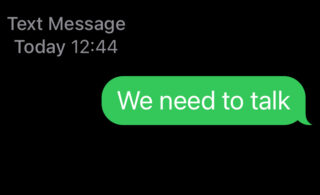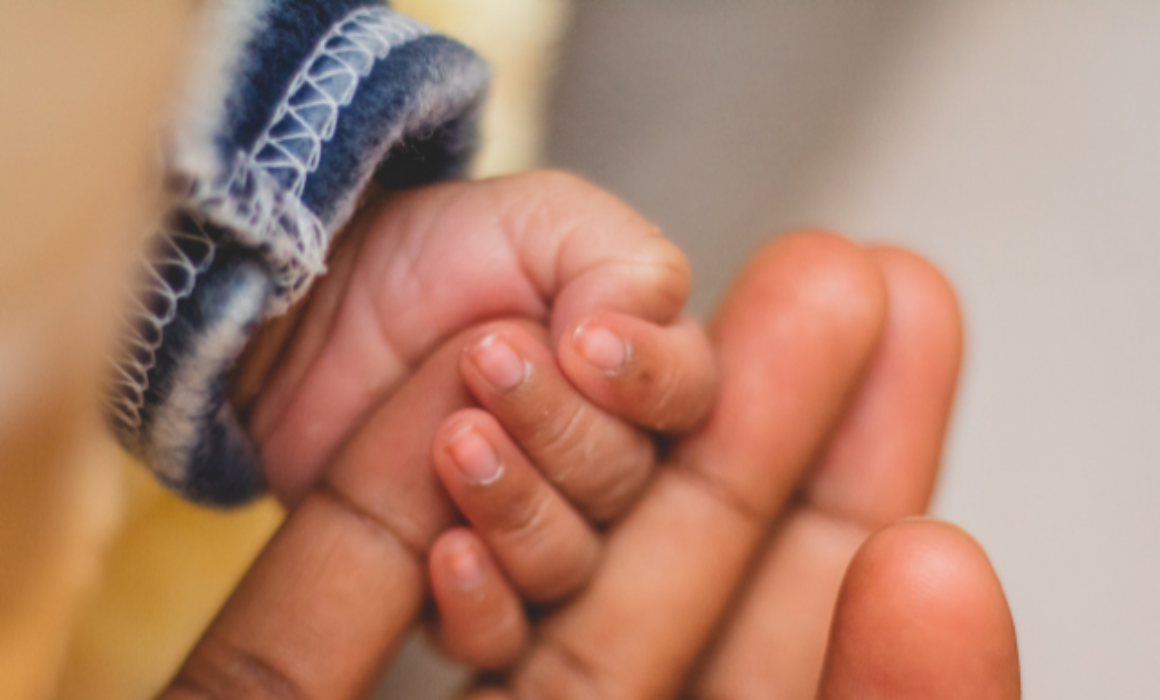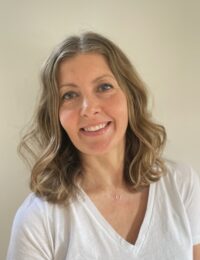
Being diagnosed with breast cancer as a parent adds another level of stress to an already stressful situation. In this article are some things to think about when it comes to parenting whilst going through breast cancer (we’ve put this together from our own experience as patients and from talking to others in this situation).
“When I was diagnosed with breast cancer, coming in joint 1st on my ‘Breast Cancer Shit List’ was the worry about:
1. Telling my children (9 year old and 11 year old) that I had breast cancer; and
2. How they would deal with it whilst I went through treatment.
(And let’s not even go to the “what will happen to them if I don’t get through this?” worry.)
However, as with many aspects of a breast cancer journey, the worry can be worse than the reality.”
Telling the children
1. How you tell your children will depend on their age.
2. Honesty is a good policy.
3. There are a lot of picture books which help you to explain the situation to younger children. You may be able to borrow some books from a local Macmillan centre, a local hospice, a cancer centre at your hospital or your local library. I have popped a list of books (some with reviews) at the end of this page.
4. Remember, you know your children best so use your judgment on how, when and what to tell them.
5. Remember that if you don’t tell your children, or don’t want them to know about any aspect of your diagnosis/treatment, then be careful with whom you tell and what you tell them. It would be so easy for a friend to say something to her husband and her children to overhear. And what if that child was a friend of your child? They could easily say something to them. Just be careful.
How to help your children
Remembering that all children are different:
1. Try to keep life and routines as normal as possible given the situation.
2. Tell school about your diagnosis.
3. Ask friends and school mums for help taking kids to and from school, clubs etc
4. Ask friends and school mums to have the children over at weekends, schools holidays and after school when you need a break.
5. Take care of yourself – if you don’t look after yourself then your recovery will be slow and it will ultimately impact on the kids more.
6. Plan some nice family things to do at the end of treatment so you all have something to look forward to together.
7. Respect your children’s feelings about your diagnosis and treatment. Sara notes that her son was adamant that none of his friends should know I had cancer and he also asked her not to come to school unless she was wearing her wig because a scarf or hat made her look cancer-y and he was uncomfortable with that. In the end, he eventually told his friends in his own time.
8. Expect changes in their behaviour. Sara notes that her nine year old daughter refused to go to bed in her own bed every night whilst Sara was going through chemo.
9. Think of some ways to help younger children deal with the upheavals that treatment can bring. Some lovely ideas are:
a. For those low immunity days when your child is poorly and you have to keep clear, give them a teddy which is Mummy’s little helper who gives out cuddles when mummy can’t.
b. Have a “hug jar”: every time your child needs a hug but you can’t give one (because you are either at hospital or having to keep a distance due to immunity issues) your child pops a token in the jar. Then when you are around for hugs, he/she can count them up and call in the hugs.
Helpful resources
Breast Cancer Now guide to telling your children which includes advice for telling your child’s school
Fruitfly Collective resources for parents with cancer. This organisation is worth a particular shout out because they provide so much advice for parents with cancer. Some of their resources are free and some you need to pay for. We thoroughly recommend looking at their YouTube channel (free resource) where you will find some really helpful bitesize talks about parenting with cancer. Have a browse around their site – you’ll find loads of videos and book/website recommendations to help you. The Fruitfly team have shared their top tips with us in this guest article.
The Little C Club – flashcards for children aged 2 years to 10 years to help them understand their parent’s cancer diagnosis and treatment.
Macmillan – advice for talking to children and teenagers about your cancer and their downloadable pdf Macmillan guide . This guide covers how to tell your children that you have cancer and then how to help your children throughout your breast cancer treatment.
Navigate – a Breast CNS Team in a large NHS Trust sharing support and resources for all parents via Instagram. Check out their services in this guest blog.
Obsourne Trust provides children aged 16 years and under whose parent/s have cancer access to recreational activities during a parent/s treatment by funding up to 3 activities such as a cinema trip, play centre visit or a meal out. Activities are supervised by an adult family member or friend. The aim is to offer the parent/s some rest and the children some time away from all that cancer entails. Check out their guest blog about their services.
UCHL – A short video from UCHL (on YouTube)
Mummy’s Star – a charity providing cancer support in or around pregnancy. Pete Wallroth, the founder of Mummy’s Star, has shared his story with us in this guest article.
Willow Foundation – Willow – We create precious memories in the toughest times. (willowfoundation.org.uk) is a great charity help create special memories for young people aged 16 – 40.
Rip Rap riprap – when a parent has cancer – riprap – is an online community where pre-teens and teens can support each other when their parent has cancer. It is fully moderated and there is also professional support behind the scenes.
Books for younger children
B is for Breast Cancer (Meet Lucy and Jack) Lucy and Jack have a Mum who has been diagnosed with primary breast cancer and needs to have chemotherapy, surgery, radiotherapy and hormone therapy. This book explores a little of the impact on the lives of the family, in a way designed to be helpful and non-threatening to children who may share a similar experience.
The Monster Series by Donia Youssef. Following her own breast cancer diagnosis, Donia found very little literature on how to explain what was happening to her two young daughters. So she wrote her own book – The Monster In Mummy. She’s followed this up with some more Monster books to help families where someone has cancer. Proceeds go to cancer charities and can be purchased via Donia’s website: The Monster in Mummy and The Monster in Wonderland.
Mighty & Bright, a US based support website with books aimed at helping children through challenging life experiences including the cancer of a parent (they ship to the UK). The founder of Mighty and Bright, Sara, has written this article for us.
Breast Cancer Now book called “Mummy’s Lump” aimed at talking to younger children about your breast cancer.
Butterfly Boy Oliver’s mummy is unwell. He hopes that if he looks after her, she will get strong enough to fly him in the air again, just like she used to. When Oliver finds a tiny, weak caterpillar, he knows just what to do. As he looks after the caterpillar it begins to change and Oliver learns that it is going to turn into a beautiful butterfly.
Personal stories on the topic of parenting with cancer
Visit our Personal Stories section to read about experiences of parenting with cancer, including pregnancy, breast feeding, parenting teens and more.
Further information
Future Dreams hold a range of support groups, classes, workshops and events to help you and your carers during your breast cancer diagnosis. These are held both online and in person at the London-based Future Dreams House. To see what’s on offer and to book your place, see here.
To return to the homepage of our Information Hub, click here where you can access helpful information, practical advice, personal stories and more.
Reviewed February 2023
The information and content provided on this page has been written from a patient’s perspective then reviewed by a breast care nurse and it is intended for information and educational purposes only. It is not intended to substitute for professional medical advice. Please contact your medical team for advice on anything covered in this article and/or in relation to your personal situation. The links and/or recommendations in this article to third-party resources are for your information and we take no responsibility for the content contained in those third-party resources. Any product recommendations made in this article are not product endorsements and unless otherwise stated, they are made without any affiliation to the brand of that product. We ask you to note that there may be other similar products available.
Share
Related reads


Support awareness research
Donate to those touched by BREAST cancer
Sylvie and Danielle began Future Dreams with just £100 in 2008. They believed nobody should face breast cancer alone. Their legacy lives on in Future Dreams House. We couldn’t continue to fund support services for those touched by breast cancer, raise awareness of breast cancer and promote early diagnosis and advance research into secondary breast cancer without your help. Please consider partnering with us or making a donation.

